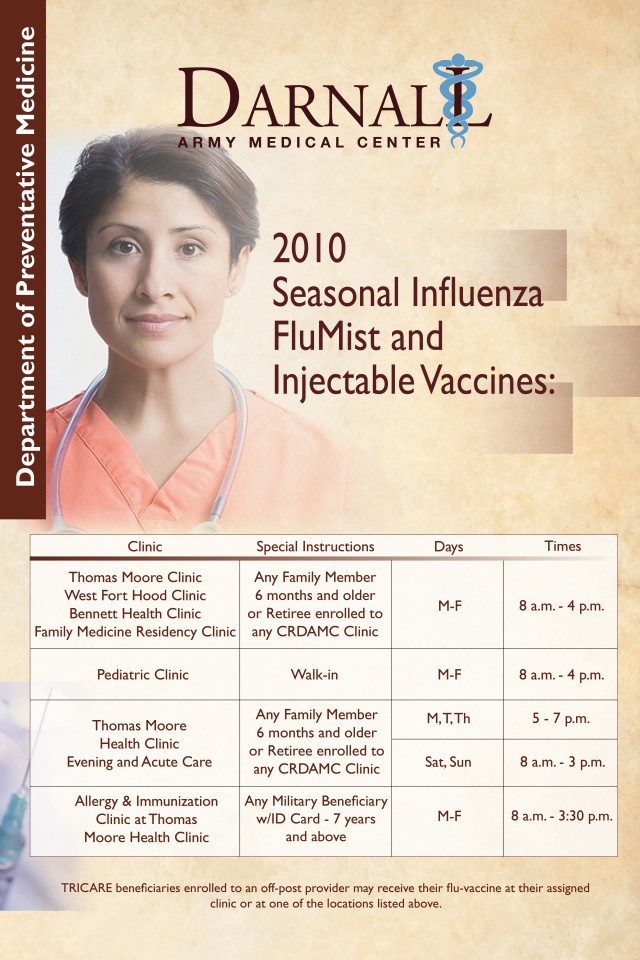
FORT HOOD, Texas - Cooler morning temperatures and daytime highs below 100 degrees are a good sign that fall is around the corner. The cool air is often a welcome relief for many, but it carries with it the beginning of the influenza season and trips to the doctor to see if that cough, sneeze or fever is due to a cold, allergy or is it really the flu.
To ward off the flu, Carl R. Darnall Army Medical Center at Fort Hood is currently vaccinating military beneficiaries in their primary care clinics.
Flu immunizations are required for all active duty, activated National Guard and activated Reserve personnel. Military personnel will receive their vaccinations in their units.
TRICARE beneficiaries enrolled to off-post providers may receive their seasonal flu vaccine at their assigned clinic or at one of Darnall's clinics.
This year, individuals can expect a single vaccine, which marks a change from last year's separate doses for the seasonal flu and H1N1. Nasal spray and injected vaccines will be available again this year.
The nasal spray vaccine is available for individuals ages 2 to 49 who are not pregnant and do not have pre-existing medical conditions that make them ineligible. The vaccine injection is available for individuals over 49, for children 6 months to 36 months of age, and for high-risk patients such as pregnant women and those with weak immune systems.
Anyone over 9 years old will require only a single dose of vaccine. Children who are 6 months old to 8 years old may require two doses depending on vaccination history. Health care providers will be able to determine your specific needs.
For beneficiaries who qualify, the nasal spray vaccine provides the best protections against seasonal flu. The CDC recommends that if you are sick with a fever, you should talk to your health care provider about getting your vaccine later.
One common misconception about flu immunizations is that it will give you the flu. According to the CDC, the viruses used in the vaccine are inactivated, which means they cannot cause infection. Manufacturers test each batch of flu vaccine to ensure safety.
As always, proper hygiene is one of the biggest factors in stopping the spread of illnesses. Proper hand washing and the use of hand sanitizers, cough and sneeze etiquette, adequate sleep and a nutritious diet are essential to healthy living.
Symptoms of influenza include fever, headache, dry cough, sore throat, runny or stuffy nose and muscle aches. Stomach symptoms such as nausea, vomiting and diarrhea can also occur but are more common in children.
If you experience trouble breathing, dehydration, chest pain or sudden dizziness, contact your health care provider immediately.

Social Sharing